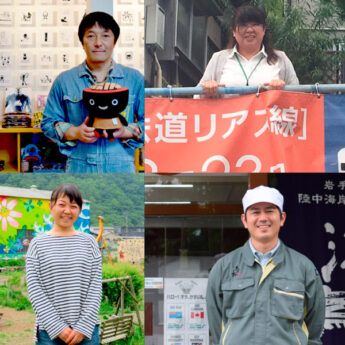“People like change as long as they feel part of it”, said Martin Donnelly, permanent secretary of the UK government’s Department of Business, Innovation and Skills (BIS).
Donnelly was speaking at a luncheon organised by the British Chamber of Commerce in Japan on 13 February. Innovative firms have grown nearly twice as fast as those that are not introducing new products, ideas or processes.
Further, in recent years, the most innovative 6% of UK firms have generated half the jobs, according to Donnelly. He knows first-hand about the challenges of innovation, as his department has had its budget slashed by 25% over the past few years.
In response to the cuts, his team removed levels of hierarchy, upgraded their information technology (IT) and changed the furniture to create a new working culture, including structures that encourage people to interact.
“Part of innovation is encouraging everyone to look at how they work”, he said.
The IT upgrade reflects the department’s focus on technology as a driver of innovation. BIS has identified “eight great” focus areas in this regard: energy storage, advanced materials and nanotechnology, agri-science, synthetic biology, regenerative medicine, satellites and commercial space applications, big data, and robotics and autonomous systems.
The latter is an area in which Japan wields great strength, he added.
The office has also invested in cutting-edge software for intellectual property protection, with products designed for small firms. “The idea of working for a big firm and striking out on your own later has changed”, Donnelly said. Now, over one-quarter of UK graduates are interested in founding their own firms.
As such, the government is offering start-up loans, many of which it expects to write off.
Take-up has been high, Donnelly said, emphasising that young entrepreneurs get fantastic support from social communities that are increasingly self-sustaining and intertwined.
Donnelly related how the government learned a valuable lesson when nanotechnology started to take off 10 years ago.
Then, he said, everyone was anxious to set up a department to support entrepreneurs in the field, so eight different units were established, all of which folded because they were too small.
“Now, we have a single system with government support for a fixed period, and afterwards projects should sustain themselves. The government comes in from behind, looking at finance, skills and social infrastructure, but we don’t do it all”, he said.
The UK government has also simplified the employment and tax laws, improved bankruptcy regulations, and changed the tax system to allow for just 10% tax on UK-registered patents.
BIS encourages firms to take on staff, a message that has been deemed “employment in a box”. You can set up a company in a day for just £40, Donnelly said.
Diversity, especially the inclusion of women in leadership, was another theme of Donnelly’s presentation. Women’s presence on boards is a major factor in fostering an innovative business environment, he said.
Women need sufficient role models to look up to, leaders they feel are similar to themselves. Science is an area in which women are continually underrepresented, he said.
This is worsened by the fact that there are simply not many girls studying scientific subjects in UK schools. Biology and life sciences are fields that traditionally attract female staff, but this needs to go further.
Part of the problem, Donnelly believes, is the media image of people in jobs such as engineering. Television typically portrays these professionals as men in hard hats, he said.
Finally, Donnelly touched on how Japanese firms and British staff have had a mutually supportive relationship for over 20 years. Britons like the longer-term approach of working for a Japanese firm and the focus on hard skills, while Japanese firms appreciate the flexibility of the UK workforce.





